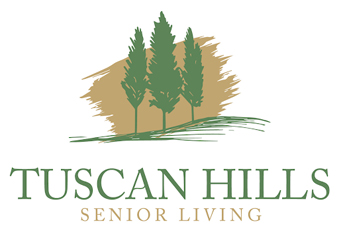TL;DR: Knowing when to transition a loved one into senior living can be emotional, but understanding the signs can help ensure their health, safety, and happiness. This guide explores when it may be time to consider senior living and how different care levels—from independent living to memory care—can best support their needs.
Readers will discover:
- Independent living signs: Difficulty maintaining a home, increased isolation, or desire for more social engagement.
- Assisted care indicators: Struggles with daily tasks like dressing, bathing, or managing medications, along with declining hygiene or mobility.
- Memory care needs: Noticeable confusion, frequent forgetfulness, mood swings, or wandering behavior.
- Peace of mind: Senior living communities like Tuscan Hills provide compassionate support, enriching programs, and tailored care options—ensuring loved ones thrive safely in a welcoming environment.
You want what’s best for your aging loved one. And that’s to be expected, as their caregiver. But sometimes, what’s wanted and what’s needed may not be one in the same.
The comfort of home and the familiarity of routine can go a long way. But if your loved one is unsupported or at risk, comfort can only take their healthy life so far.
With this in mind, we’ve assembled some of the top signs to consider moving your loved one into a senior living community. We hope with these insights, you’ll feel equipped to make this sensitive decision for yourself, your elderly loved one, and your family.
We’ve broken down our insights between signs it’s time for independent living, signs for assisted care, and more to be helpful and inclusive of different senior needs.
Signs You’re Ready for Independent Living
A home is a lot to take care of, isn’t it? From everyday maintenance and cleaning to larger upkeep projects, a home offers no shortage of items on the “honeydo list.” But we well know that what seemed feasible in your thirties, forties, and even fifties can be a different story in one’s elderly years. Everything from yard work to A/C removal can be backbreaking at best and downright unfeasible at worst.
Independent living communities offer a respite from the trials and tribulations of everyday home upkeep. From manicured lawns to dwelling maintenance, the worries about your home’s state can melt away. And what’s left is a senior lifestyle that is designed for fun and engagement rather than toil.
As you might imagine, the signs it’s time for independent living for seniors can be subtle. Still, they’re likely there with your loved one if you look hard enough. Look for these signs it’s time for independent living in your loved one. They may indicate a move is pertinent:
- They are fairly able-bodied and independent.
- Cleaning and tidying is becoming more of a hassle.
- Cooking has gone from daily routine to a source of frustration.
- Their home is in major need of repair or rehabilitation.
- They yearn to be closer to friends and peers.
- They feel isolated or lonely.
- They long for engagement that keeps things fresh.
Signs for Assisted Care
For elders with a greater sense of need, senior living communities offer a level of accommodation called “assisted living.” This is not skilled nursing, but offers helpful assistance with many of the common tasks of daily living seniors find hard.
From bathing to meal preparation, need can vary wildly. But regardless of need, assisted living settings are designed to offer comfort, convenience, and worry-free living. And as a benefit offered 24 hours a day, you can rest assured they’ll get assistance regardless of the time of day!
Here are some of the top signs assisted care is right for your loved one:
- They struggle with daily tasks like dressing, incontinence, bathing, and more.
- They require help with medication management.
- Hygiene and health have started to decline.
- They can’t or won’t drive independently.
- They find life lonely.
- You worry for their security.
- You feel increasingly unable to offer the care they need.
Signs Memory Care is Needed
Dementia is fairly common in the elderly community. But sometimes, the signs hide right under our noses. While memory care communities can offer myriad levels of support for dementia-addled seniors, the onus is on you to determine if the need is there in the first place. And this can be a challenge to the untrained eye.
Here are some of the top senior living signs that memory care is called for:
- Your loved one gets confused about the day of the week, month, year, etc.
- They have a hard time remembering loved one’s names, birthdays, etc.
- They become frustrated easily or are prone to wild, out-of-character mood swings.
- Bills are going unpaid.
- You worry for their safety.
- They have become lost or are prone to wandering out of their house aimlessly.
- You are finding it hard to offer the level of care and support they need.
Find Premium Senior Care at Tuscan Hills
We know not every senior requires the same setting or level of care to ensure their healthy and happy lifestyle. That’s why we’ve designed a premium senior living experience to meet the vast needs of today’s seniors.
From comfortable Independent Living to helpful Assisted Living, Tuscan Hills strives to feel like home with comfortable amenities for every resident. We even offer VIP Respite Care for seniors who want a taste of the senior living experience.
Plus, with an expert Memory Care unit, we’ve designed our community around enrichment, support, and safety to ensure residents can live intentionally.

